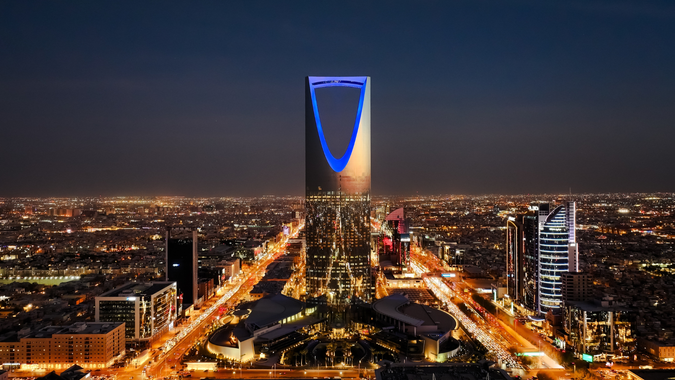Saudi Arabia has launched the second edition of its Estrdad initiative, setting aside SAR1.5 billion (around $400m) to refund government fees for startups and small and medium enterprises (SMEs).
The programme, run by Monsha’at, the General Authority for Small and Medium Enterprises, is intended to ease operating costs, stimulate entrepreneurship and drive the Kingdom’s Vision 2030 strategy to diversify its economy away from oil.
Under the scheme, firms can claim refunds on 10 types of government charges, including up to 80% of the expatriate labour levy, commercial registration, municipality licences, Chamber of Commerce subscriptions, trademark and patent registrations.
Officials say the inclusion of patent registration marks a stronger emphasis on innovation and intellectual property protection in this edition.
Eligibility criteria
To qualify, applicants must be micro, small, or medium-sized enterprises with an operational history of no more than three years. They are also required to meet Saudisation targets — hiring quotas for Saudi nationals — and hold valid economic activity licences.
Registration for the programme is open until the end of 2026, with refunds distributed in stages through 2028.
Building on past success
The first Estrdad scheme, launched in 2018, supported more than 27,000 firms. It helped generate over 89,000 jobs and achieved a 75% sustainability rate among participating businesses, according to Monsha’at.
Officials believe the second phase will broaden this impact, thanks to its expanded scope of refunded fees and a sharper focus on supporting innovation.
“By lowering barriers to entry, Estrdad is designed to provide young businesses with the breathing space they need to grow,” said a Monsha’at spokesperson. “We expect this to further strengthen Saudi Arabia’s startup ecosystem.”
Driving Vision 2030
The initiative is part of Saudi Arabia’s wider push to empower entrepreneurs, attract foreign investment and build a competitive private sector.
Under Crown Prince Mohammed bin Salman’s Vision 2030, the Kingdom aims to significantly increase the contribution of SMEs to GDP, boost private sector participation, and create more high-value jobs for its growing youth population.
Industry analysts suggest the focus on reimbursing key regulatory and labour fees could provide a lifeline to early-stage ventures struggling with costs in their formative years.
“Reducing upfront expenses can mean the difference between survival and closure for many startups,” said Riyadh-based economist Noura Al-Shehri. “Estrdad’s second edition sends a strong signal that the government wants SMEs to thrive and play a central role in economic diversification.”
As the regional competition to attract entrepreneurs and investors intensifies, Saudi Arabia is banking on Estrdad and other pro-business reforms to position itself as a hub for innovation and private enterprise.

